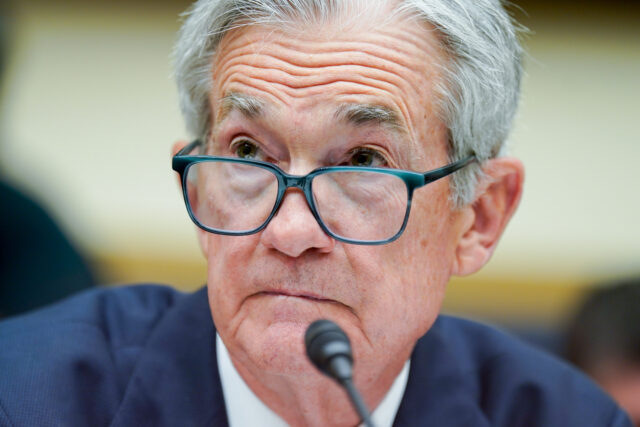Powell Pushes Back On Trump, Says Tariff Uncertainty Justifies Holding Rates Steady

Federal Reserve Chair Jerome Powell told Congress on Tuesday that the central bank is not ready to resume cutting interest rates, citing lingering uncertainty over how new tariffs will affect consumer prices. Powell said the strength of the economy gives the Fed room to wait for more data before adjusting its policy stance.
“For the time being, we are well positioned to wait to learn more about the likely course of the economy before considering any adjustments,” Powell said in testimony before the House Financial Services Committee.
The remarks come as inflation has declined from last year’s highs and job growth has slowed, leading some Fed officials to push for rate cuts as early as July. But Powell signaled that the central bank is in no hurry, pointing to the possibility that import duties imposed by President Trump in April could still filter through to prices in the months ahead.
Powell said the Fed expects to see the impact of the tariffs reflected in June and July inflation data, but only one of those reports will be available before the Fed’s next policy meeting at the end of July.
“The effects on inflation could be short-lived—reflecting a one-time shift in the price level. It is also possible that the inflationary effects could instead be more persistent,” Powell warned. He said that whether the price impacts fade or persist will depend on supply chains, consumer expectations, and how businesses respond to higher costs.
Fed officials unanimously agreed last week to keep the benchmark interest rate at 4.25 to 4.50 percent. The Fed has held that rate steady since December, after cutting it three times in the second half of last year.
Powell was unusually blunt about what’s keeping the Fed from easing. “If you just look at the basic data and don’t look at the forecast,” he said, “you would say that we would’ve continued cutting.” The reason for the pause, he explained, is what he has repeatedly claimed, without evidence, is a near-universal expectation that inflation will rise in the coming months due to tariffs. “We can’t just ignore that,” he said.
Behind the consensus, however, is a growing split among Fed policymakers over what comes next. Governors Michelle Bowman and Christopher Waller, both appointed by President Trump, have publicly supported resuming rate cuts soon. They argue that tariffs are likely to raise prices temporarily but won’t result in sustained inflation, and that keeping rates too high could weaken the economy unnecessarily.
Others inside the Fed remain more cautious, warning that businesses might seize the opportunity to pass along higher costs after several years of elevated inflation. If that happens, Powell said, “a one-time price increase” could evolve into a broader, more persistent inflation problem.
Markets expect the Fed to begin easing policy in September, with futures pricing in roughly a 75 percent chance of a cut by then. But investors see only modest odds for a move in July, in part because Powell emphasized the Fed’s data-dependent approach and the limited information it will have before the next meeting. Powell’s remarks on Tuesday did not meaningful move the odds of a July cut—now around 19 percent from almost 21 percent Monday—implied by derivatives linked to Fed policy.
Powell also declined to comment directly on the wisdom of Trump’s trade policies. Pressed by Democrats and Republicans alike, he said tariff decisions fall outside the Fed’s authority. “That’s not our role,” he said. “We are not an institution that comments on the decisions that the president makes.”
President Trump, who has sharply criticized the Fed in recent weeks, said Friday he believes the central bank should act faster and more aggressively to support growth. But Powell used his testimony to reaffirm the Fed’s independence, saying the central bank will make its decisions based on economic data, not political pressure.
Testifying again Wednesday before the Senate Banking Committee, Powell will likely face similar questions about the path ahead for interest rates—and whether the Fed will change course if inflation remains under control despite the new tariffs.